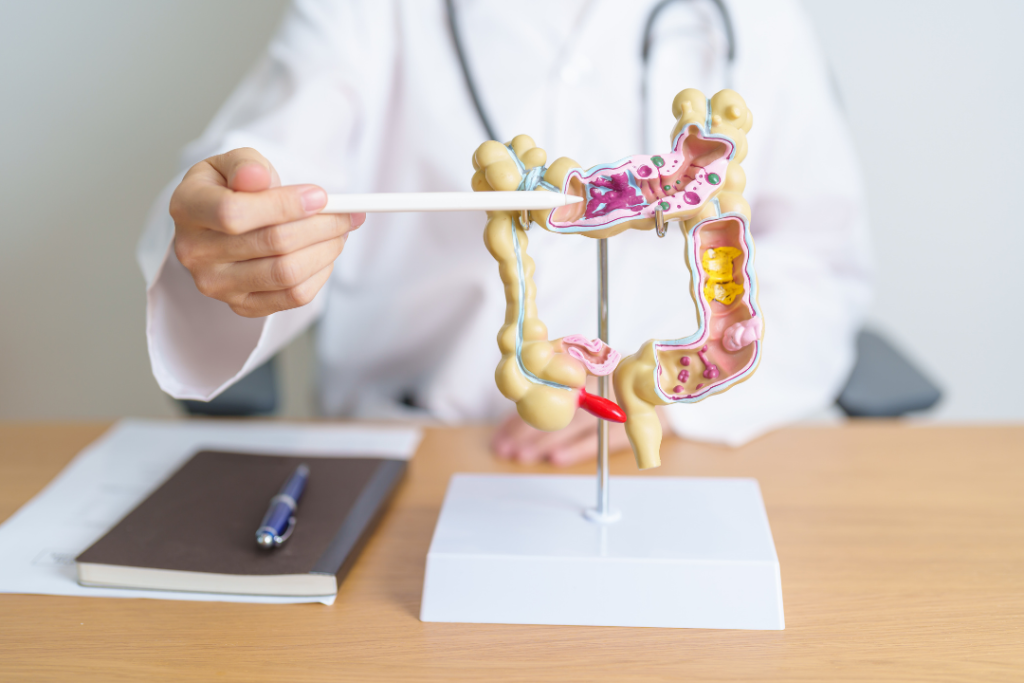
Colorectal Cancer Surgery: Types, Recovery, and What to Know
Colorectal cancer affects the colon or rectum and is one of the most commonly diagnosed cancers in the United States. When detected early, colorectal cancer surgery offers a strong chance for long-term recovery and even cure. At Surgical Associates, our surgeons use advanced, minimally invasive techniques to remove tumors safely while preserving as much healthy tissue as possible. Understanding the different surgical options and what to expect during recovery can help patients feel more confident and informed as they begin treatment.
What Is Colorectal Cancer Surgery?
Colorectal cancer surgery involves removing the section of the colon or rectum that contains the cancer, along with nearby lymph nodes, to help prevent the disease from spreading. Depending on the stage and location of the tumor, the approach may be open, laparoscopic, or robotic-assisted. Our team carefully evaluates each patient’s condition to determine the safest, most effective surgical plan.
The main goal is to remove all visible cancer while protecting healthy bowel function. Because every patient’s anatomy and diagnosis are unique, no two operations are exactly alike. Surgical Associates emphasizes personalized care and precision at every stage of the process.
Common Types of Colorectal Surgery
Several types of procedures may be performed, depending on tumor size and location:
Colectomy (Colon Resection)
A colectomy removes part or all of the colon. In a partial colectomy, only the cancerous section and nearby tissue are removed, and the two healthy ends of the colon are reconnected. In more advanced cases, a total colectomy may be necessary to remove the entire colon. Minimally invasive or robotic-assisted approaches allow for smaller incisions, less postoperative pain, and faster recovery.
Proctectomy
If the cancer is located in the rectum, surgeons may perform a proctectomy, which removes part or all of the rectum. Depending on the tumor’s distance from the anus, a connection may be made between the colon and the remaining rectum, or a temporary colostomy may be required to divert waste while healing.
Local Excision
For very early-stage cancers confined to the inner layers of the colon or rectum, a local excision may be possible. This procedure removes the tumor through the rectum without large incisions. It’s often used when cancer has not spread to lymph nodes or deeper tissues.
Minimally Invasive and Robotic Techniques
Surgical Associates offers advanced laparoscopic and robotic-assisted options for colorectal cancer surgery, allowing for greater precision, smaller incisions, and quicker recovery times. These techniques are particularly beneficial for complex or lower rectal tumors, where access and visibility are challenging. Robotic systems provide enhanced 3D visualization and flexibility, helping our surgeons operate with exceptional accuracy.
What to Expect Before and After Surgery
Before surgery, patients undergo a series of preoperative evaluations, including imaging studies and blood work. Bowel preparation is often required to clear the intestines, and patients receive guidance on medication adjustments, diet, and fasting. Our surgical team explains every step, ensuring patients understand their care plan fully.
Hospital Stay and Early Recovery
Following colorectal cancer surgery, most patients stay in the hospital for several days. Pain control, early movement, and careful monitoring are priorities during this period. Nurses and surgeons watch for potential complications such as infection, bleeding, or changes in bowel function. Patients are encouraged to walk as soon as possible to reduce the risk of blood clots and improve bowel movement recovery.
Returning Home
Once discharged, patients continue recovery at home with detailed care instructions. It’s normal to experience fatigue, mild discomfort, or changes in bowel habits for several weeks. Gradual improvement is expected as the body heals. Our surgeons schedule follow-up appointments to assess healing, discuss pathology results, and determine whether additional treatments such as chemotherapy or radiation are needed.
Understanding Potential Risks and Complications
All surgeries carry some risk, but major complications after colorectal cancer surgery are uncommon with proper care. Potential issues may include infection, anastomotic leak (where reconnected bowel ends don’t fully heal), or temporary bowel obstruction. Minimally invasive and robotic techniques help reduce these risks, but Surgical Associates also provides comprehensive postoperative monitoring to catch and address any concerns early.
Patients who undergo a temporary colostomy or ileostomy receive guidance and education from our nursing team on stoma care and supplies. Most patients adapt quickly and, in many cases, reversal surgery is possible once the bowel has healed.
Long-Term Recovery and Lifestyle After Surgery
Healing continues for several months after colorectal cancer surgery, and long-term recovery involves both physical and emotional adjustments. Many patients gradually return to normal activities within 4–6 weeks, although this varies depending on the procedure and individual health.
Adopting a balanced diet, staying active, and attending all follow-up appointments are key to maintaining digestive health and monitoring for recurrence. Regular colonoscopies and imaging may be part of ongoing care. Emotional support—through counseling, patient groups, or family—can also help patients navigate post-surgical changes and regain confidence.
The American College of Surgeons and National Cancer Institute offer excellent educational resources for patients recovering from colorectal procedures. These organizations provide evidence-based guidance on nutrition, exercise, and long-term cancer surveillance (ACS, NCI).
How Surgical Associates Supports Every Step of Care
At Surgical Associates, our approach to colorectal cancer surgery centers on patient safety, compassion, and modern surgical expertise. From diagnosis to recovery, our multidisciplinary team—including surgeons, anesthesiologists, and nursing staff—works closely to ensure the best possible outcome. We use the latest minimally invasive and robotic technologies to minimize pain, shorten recovery time, and improve long-term quality of life.
If you’ve been diagnosed with colorectal cancer or referred for surgical evaluation, our team is here to help. Contact Surgical Associates today to schedule a consultation and learn how our expertise in colorectal cancer surgery can support your recovery and long-term health.